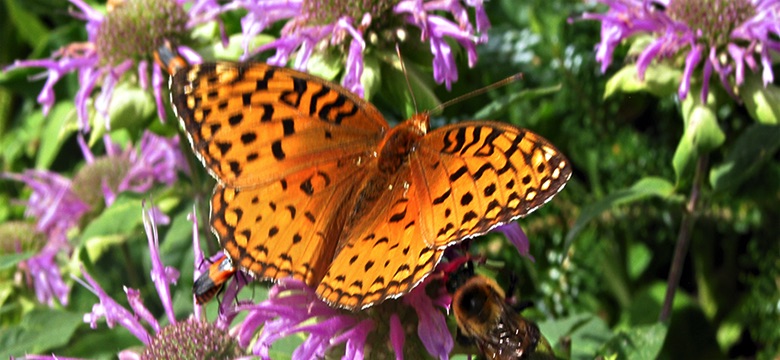Let’s talk evolution. And, I’m not referring to the age old battle between Darwin and Church. I’m talking about when you import an alien plant from somewhere else on the planet to North America. What happens? Or, in the case of most plants, what’s important is what doesn’t happen. The plant doesn’t support insect life and remains nearly sterile. Why?
The common wisdom amongst gardeners and general studies in Ag education lead one to believe that alien plants will indeed naturalize over time. That means that an alien plant will become native, or at least a naturalized native, just because it has been here for a few hundred years or so. Sadly, that couldn’t be further from the truth.
The facts are quite conclusive:
• In Europe, the common reed grass, Phragmites australis supports over 170 species of phytophagous insects, while here in the US it only supports 5 of our native herbivores.
• In Australia, the Melaleuca quinquenervia or Paper Bark Tea Tree supports 409 arthropods while in Florida only 8 species of arthropods are known to eat it.
• In Australia, Eucalyptus stellulata is host to 48 insect species, but in California only 1.
These are just a couple of examples of the thousands of sterile alien plants that waist space in our gardens, yards, and open spaces. So, you’ve got to be asking yourself, why?
The answer is simple, evolution. Native insects and native plants in any given region of the planet evolved together. So, the insects developed digestive systems specialized to process that particular plant’s chemical makeup. Up to 90% of all phytophagous insects are considered specialists because they evolved with the plants they eat. For an alien plant to truly naturalize, insect populations would need 10s of thousands of years to adapt, so they can digest that alien plant.
The question is, do we have time to wait to see if that will really happen? Or, should we be proactive in our landscape design and plant natives in our yards andgardens, now?
Native vs naturalized, it's a question of evolution...
Friday, January 14, 2011
